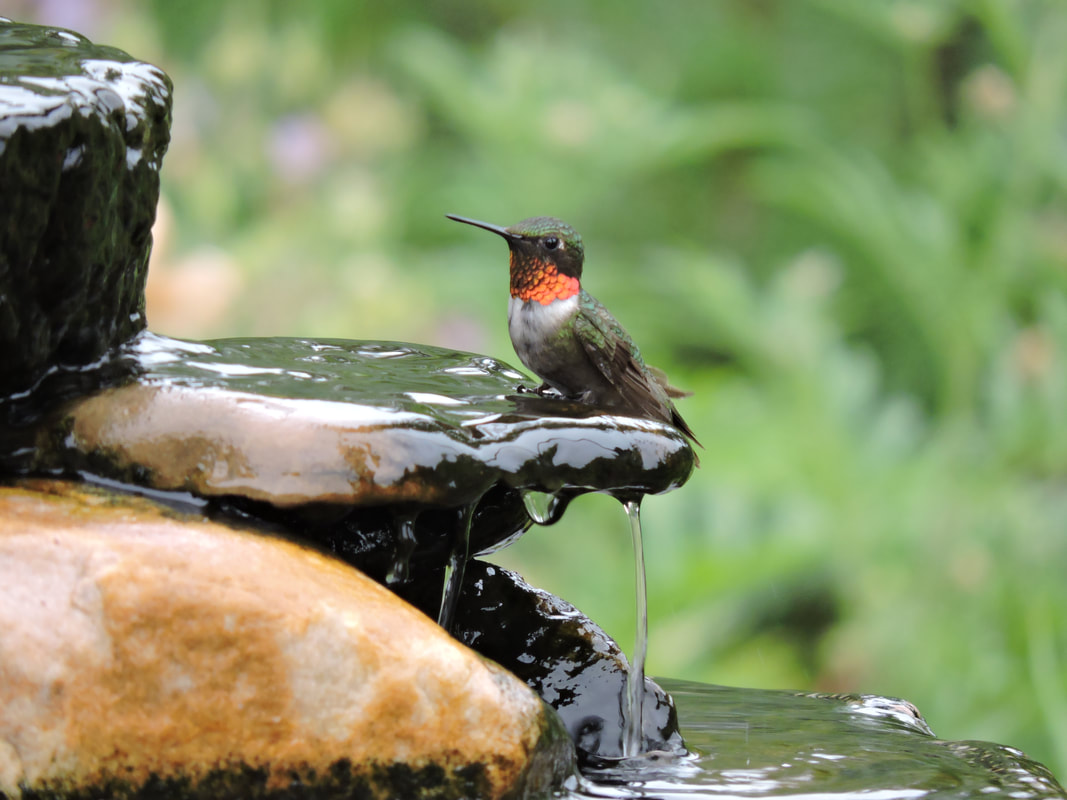Humming Blog |
 This has been a recent idea that's been floating around the hummingbird groups. I don't know where this idea first came from, but you have to understand these birds in order to know whether or not it's true. A lot of other birds like to gather in flocks and feel secure in groups, but hummingbirds are solitary birds, but not to say they won't be found together under certain circumstances. Although they appear very cute and cuddly, their personality more closely resembles that of a wolverine. As a matter of fact, once the mating ritual and breeding have been performed, the relationship appears to be quite dysfunctional. There's no more quiet time, but rather a whole lot of bickering, and they go their separate ways. He defends the territory which is very similar to the males of other bird species, and the female will build the nest and care for the young, alone. They are solitary birds. They search out food sources for themselves, and have little desire to share with others. The two young siblings take a little bit of time to develop their independence, and oftentimes before this point are seen feeding or sitting nearby each other. It doesn't take long before that relationship has ended, as food and territory take priority. In springtime, every bird we see traveling north is a mature bird, each with a strong desire to fulfill their own purpose. Males will fight to the death, if necessary, for a territory that they find suitable, while the females fulfill their own desire in raising up their young. They don't travel in flocks, but are sometimes found at a common food or water source where there are few available. The first to move north are the males, and they have no intentions of informing or sharing with any of the others of a perfect location they've found. They want it for themselves while they wait for the females to arrive, for the purpose of breeding. They need to locate the perfect option because the females to follow will also be looking for a perfect location to nest, with nearby food sources for herself and for the young when they leave the nest. The male will breed with as many females as possible in a season, which is another reason they don't want any other males in their territory. When you hear hummingbirds squeaking, it's not a "hello, how are you" greeting, but more of a "mine, and get out" warning. So with the question of whether or not they send a scout to look out for the rest of them, they are all about a me, myself, and I mentality, and would much rather just be left alone. This was last year's male Ruby-throat hummingbird. Photo taken in July, 2021. N.E. of Edmonton, Alberta, Canada.
0 Comments
Leave a Reply. |
Archives
June 2024
Categories
All
|
 RSS Feed
RSS Feed
